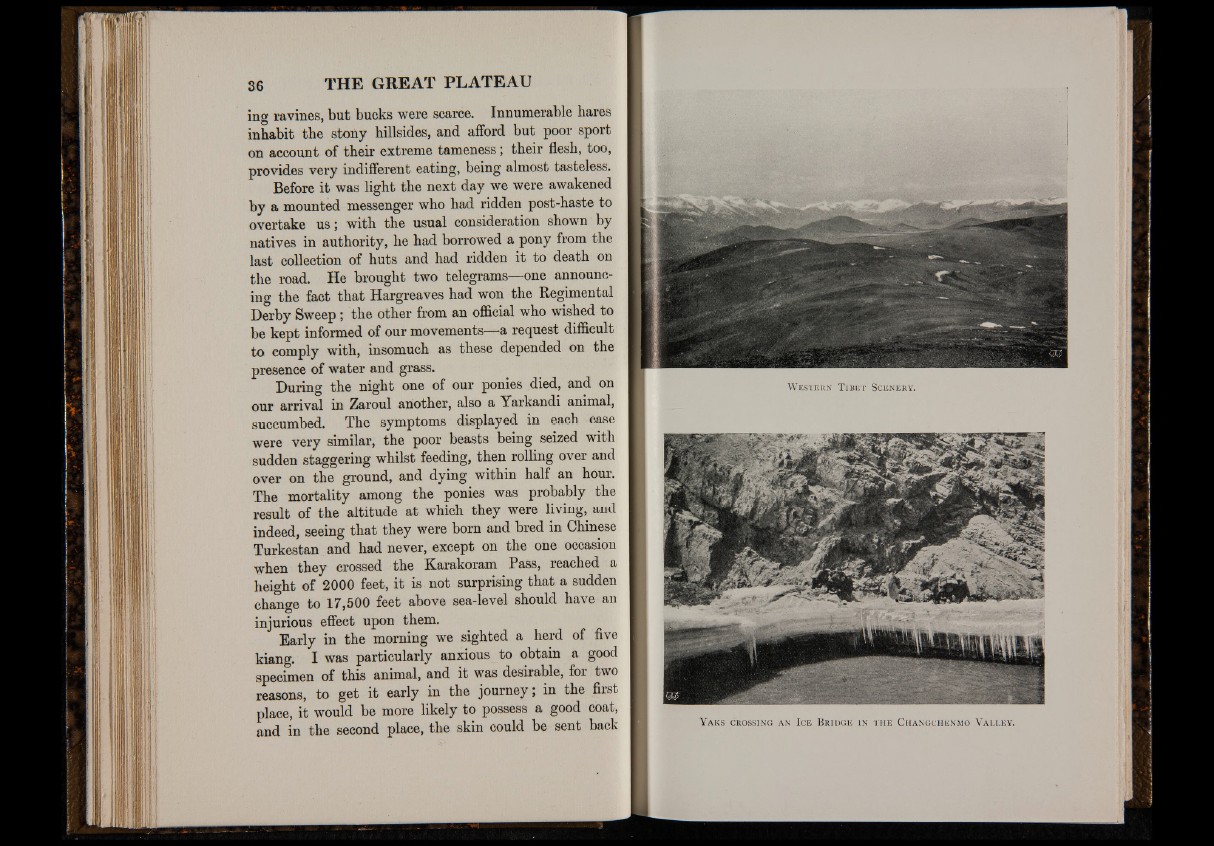
ing ravines, but bucks were scarce. Innumerable hares
inhabit the stony hillsides, and afford but poor sport
on account of their extreme tameness; their flesh, too,
provides very indifferent eating, being almost tasteless.
Before it was light the next day we were awakened
by a mounted messenger who had ridden post-haste to
overtake u s ; with the usual consideration shown by
natives in authority, he had borrowed a pony from the
last collection of huts and had ridden it to death on
the road. He brought two telegrams—one announcing
the fact that Hargreaves had won the Regimental
Derby Sweep; the other from an official who wished to
be kept informed of our movements—a request difficult
to comply with, insomuch as these depended on the
presence of water and grass.
During the night one of our ponies died, and on
our arrival in Zaroul another, also a Yarkandi animal,
succumbed. The symptoms displayed in each case
were very similar, the poor beasts being seized with
sudden staggering whilst feeding, then rolling over and
over on the ground, and dying within half an hour.
The mortality among the ponies was probably the
result of the altitude at which they were living, and
indeed, seeing that they were born and bred in Chinese
Turkestan and had never, except on the one occasion
when they crossed the Karakoram Pass, reached a
height of 2000 feet, it is not surprising that a sudden
change to 17,500 feet above sea-level should have an
injurious effect upon them.
Early in the morning we sighted a herd of five
kiang. I was particularly anxious to obtain a good
specimen of this animal, and it was desirable, for two
reasons, to get it early in the journey; in the first
place, it would be more likely to possess a good coat,
and in the second place, the skin could be sent back
W e s t e r n T ib e t S c e n e r y .
Y a k s c r o s s in g an I c e B r id g e in t h e C h a n g c h e n m o V a l l e y .